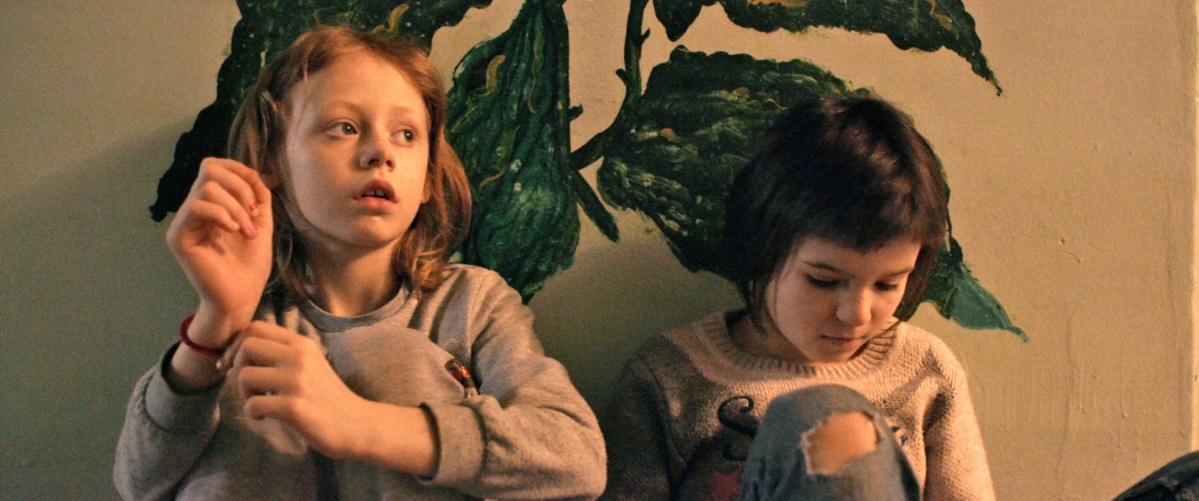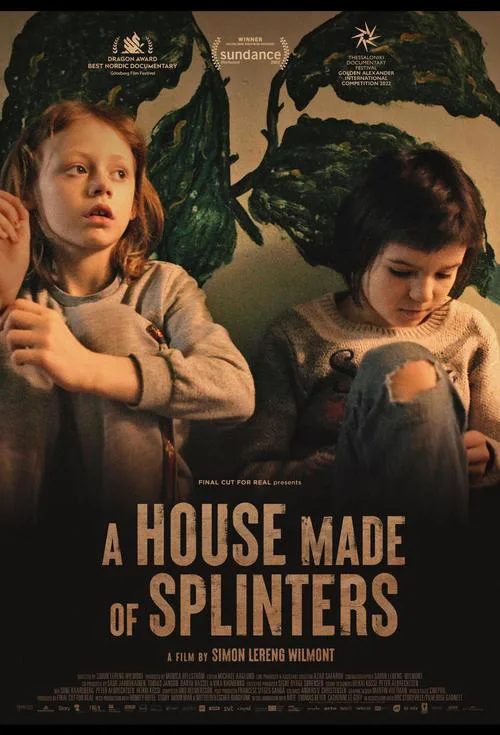Last month, one of the most surprising Oscar nominees was “A House Made of Splinters,” a film that edged out some strong contenders in the Best Documentary category and is getting a VOD and limited theatrical release today. Anyone who saw it shouldn’t be too surprised. It’s accessible, moving, and tragically timely. Filmed at an orphanage in Eastern Ukraine before the war began there in February of last year, it’s hard to push away thoughts of how much this part of the world has been decimated over the last 12 months. Where are these children and their caretakers now? While director Simon Lereng Wilmont and his team couldn’t have envisioned what would soon happen in this part of the world, they do capture the impact of cycles of violence and trauma, which certainly work their way into the fractures of this landscape for generations to come. Wilmont’s film edges into emotional exploitation at times, but the raw moments he captures in this facility are a testament to the trust he clearly built with everyone there—and that ability to capture truth without interfering or manufacturing gives his film an undeniable emotional power.
“A House Made of Splinters” unfolds at Lysychansk, a facility in Ukraine where parents can drop off children for up to nine months, at which point they’re put into the foster system. The idea is that it’s a place for kids to be while adults deal with things that no child should endure, like alcoholism or abuse. The problem is that these demons often take longer than nine months, and sometimes parents simply don’t return for their kids, succumbing to addiction so badly that it changes their parental status.
The children Wilmont follows are more keenly aware of their situations than you might think. Kids are far more observant than adults believe, and it’s fascinating to hear them cautiously talk here about their home lives and see how they wrestle with homesickness, trauma, and fear. They often lash out at each other, or the adults, especially the boys—one cuts his arm and uses a marker to deface the facility. And Wilmont opens the door to how much situations like this trickle down across generations. “She copies what she saw in her childhood,” says a social worker who speaks of seeing mothers who were children at Lysychansk now dropping off their offspring.
Wilmont is careful not to wallow in misery, pointing out how much joy these children find in their everyday existence. It’s moving when a girl is heartbroken over not being able to reach her alcoholic mother, but there’s something even more powerful about the following scene, in which she plays with bubbles in a hall with her friend. Kids need to be kids. They need to laugh together. They need to smile. Seeing that emerge even during consistent grief is where “Splinters” gets its most strength. And it’s most tragic how play has become an even rarer commodity in the country of Ukraine since the film was shot.
There are times when Wilmont could have turned away a few seconds earlier, but that’s likely just the protective parent in me who wanted to turn off the camera and give these young adults their space. Documenting childhood trauma in a film is a tricky line to walk because a kid can only give so much approval for that to now forever be a part of film history, and this documentary is so lean in terms of form that it’s sometimes over-reliant on private emotion. But Wilmont doesn’t cross that line as much as other filmmakers have previously, and one might argue that it’s a testament to how much these kids trusted him that they allowed such private moments to become public.
Wilmont is careful not to betray that trust with overdone music or too many close-ups of tears—although there are enough of those to make this one of the more emotionally exhausting films in a long time. Instead, he gets his most mileage out of mere observations, whether catching a troubled young man laughing with his friends or framing the light behind two kids playing behind curtains. Every kid plays. Sometimes even if they know they’ll get a splinter when they do.
On VOD and in theaters today.




















